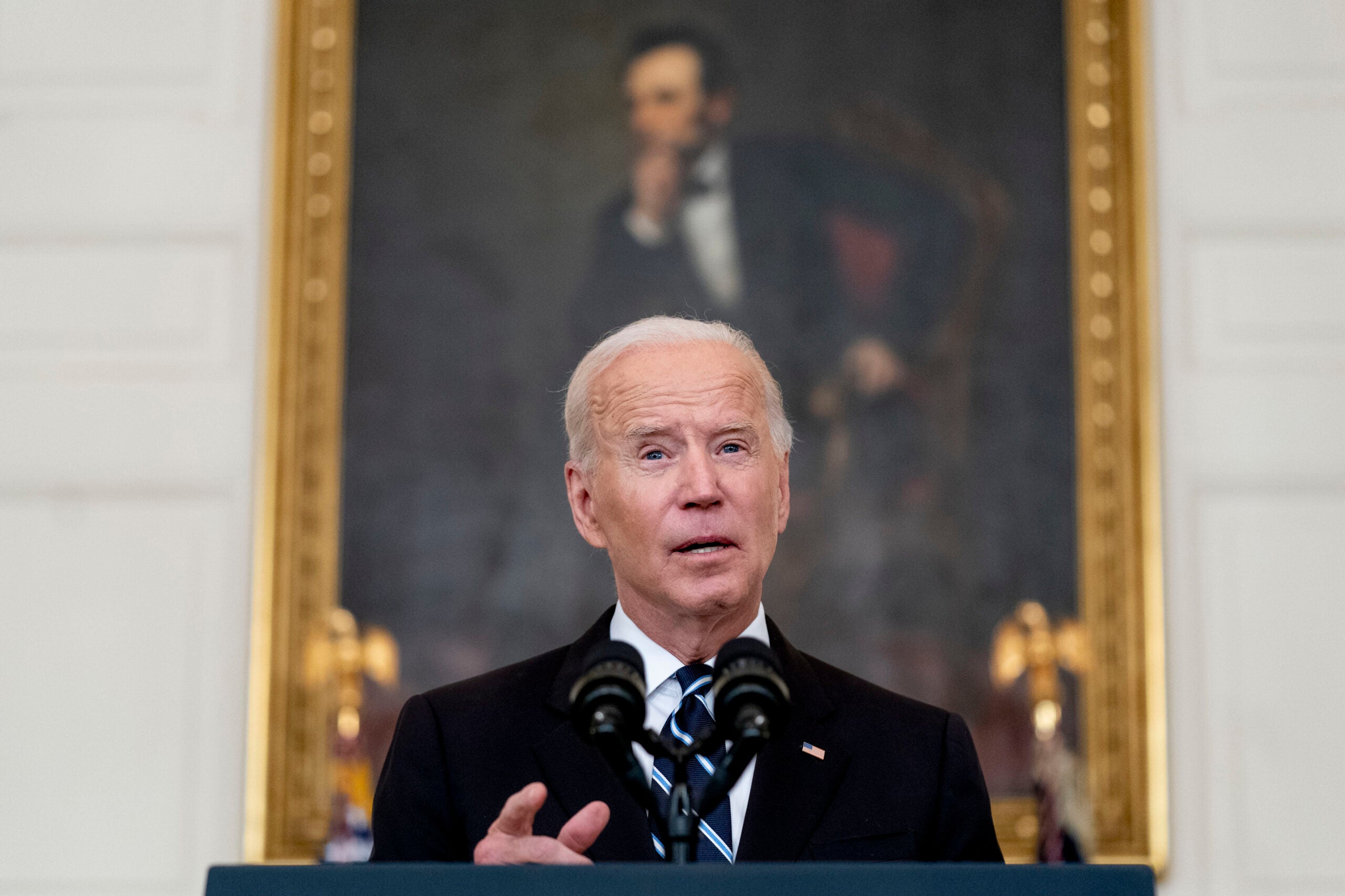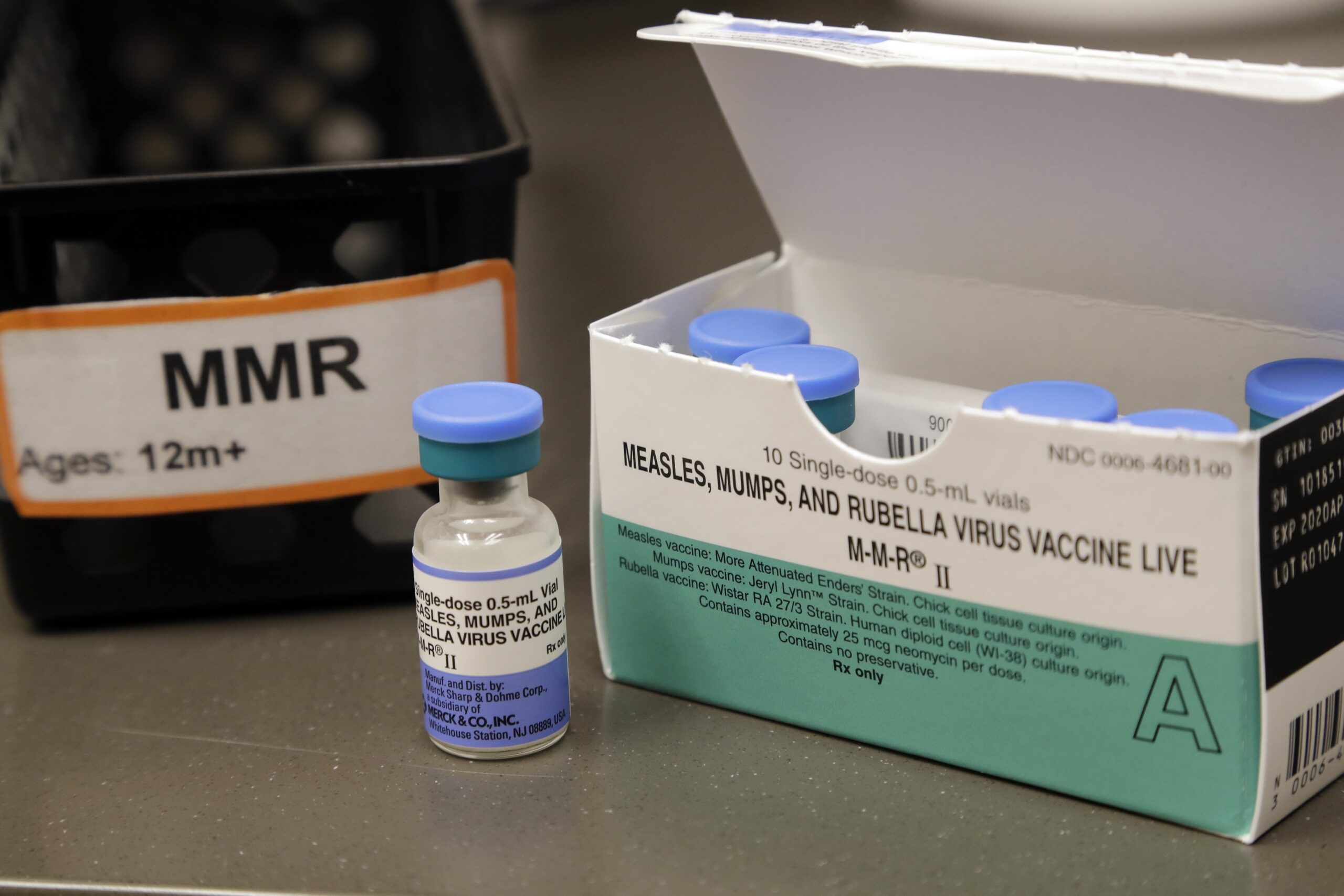President Joe Biden is asking the U.S. Department of Labor to mandate COVID-19 vaccinations or weekly testing for employers with 100 or more workers. That’s about two-thirds of the American workforce.
Biden’s announcement Thursday was a surprise to many who expected the president to issue a federal vaccine mandate, but not one for private-sector employees.
Republicans have condemned the proposal and said they plan to sue the Biden administration. In Wisconsin, 66.4 percent of adults have received at least one dose of the vaccine, according to the state Department of Health Services.
News with a little more humanity
WPR’s “Wisconsin Today” newsletter keeps you connected to the state you love without feeling overwhelmed. No paywall. No agenda. No corporate filter.
Erik Eisenmann, a labor attorney in Husch Blackwell’s Milwaukee law office, has been hearing from employers who have been hesitant to mandate the vaccine because they don’t want workers to quit during a tight labor market.
“I have a lot of clients, especially in the manufacturing space, who tell me as much as 10 percent of the workforce might leave and go down the street and work for another company that doesn’t have a requirement,” Eisenmann said.
Torben Christensen, president and CEO of Wiscon Products Inc., a manufacturing parts supplier in Racine, said a mandate would be impossible for employers to monitor.
“Our job isn’t to be confrontational with our employees, we can’t even police them for time and attendance right now because there is such a labor shortage,” Christensen said. “How on earth am I going to start policing guys if they decide they don’t want to wear a mask or get the vaccine?”
Christensen’s company wouldn’t fall under Biden’s mandate — his company has about 45 employees. At its peak, he had around 65 people working for him.
Christensen said finding workers is the hardest part of his job, but he thinks vaccine mandates at larger companies in the area may encourage people to work for him instead.
“I feel it’s the guys and gals that are in manufacturing, the blue collar, that are nervous about the vaccine and don’t want to be told what to do by the government,” Christensen said. “I think it will open up opportunities for companies like mine and certainly the service industries that are struggling to find help.”
Under Biden’s proposal, the Department of Labor’s Occupational Safety and Health Administration will be allowed to issue an emergency rule for private sector employers to mandate the vaccine or weekly testing. The order would come down as a safety regulation.
Biden also announced federal workers and contractors will be required to be vaccinated for COVID-19, eliminating an option laid out in July for unvaccinated employees to be regularly tested instead.
Federal workers will have about 75 days to become fully vaccinated. There will be limited exemptions for medical or religious reasons.
Eisenmann said Biden’s mandate for federal workers is more straight forward, and similar to what is happening in places like the city of Milwaukee and Dane County. If it is challenged, it will likely be by labor unions, but Eisenmann said he believes it will be upheld.
Eisenmann said once OSHA issues its emergency rule in coming weeks, private employer groups will begin filing legal challenges.
“It’s going to be difficult to tell exactly how it’s going to shake out,” Eisenmann said. “I think there is a greater than 50 percent likelihood that (Biden’s mandate) will survive a legal challenge because of some precedent we’ve seen around OSHA’s ability to do that and the fact that COVID has stuck around and the fact that the other mechanisms we’ve put in place haven’t solved it.”
California, which has its own version of OSHA, issued an emergency standard earlier this year for masks, which was challenged in court. It was upheld.
Wisconsin Manufacturers & Commerce President and CEO Kurt Bauer said the group will continue to evaluate the proposal as details are formally published.
“In the meantime, we believe this order places undue and unfair burdens on businesses who have already gone to great lengths and expense to protect the health and safety of their employees,” Bauer said in a statement. “Employers should not be forced by government to police their employees’ vaccination status, which is what this expected rule would do.”
The Metropolitan Milwaukee Association of Commerce also issued a statement calling the mandate a “burden,” while pointing out many Milwaukee regional employers have already chosen to require their employees get vaccinated.
“We are concerned that this new federal requirement for any business with 100 or more employees to require vaccinations or regular testing of their entire workforce is a blunt instrument that will create a significant regulatory and logistical burden for businesses,” the statement said.
The city of Milwaukee, Milwaukee County, Dane County, Milwaukee Public Schools and dozens of Wisconsin health care systems are requiring their employees to be vaccinated or show proof of a negative test by the end of the year.
An NPR/PBS NewsHour/Marist poll last week found 50 percent of United States adults support employers requiring vaccination to return to in-person work, while 44 percent do not. The poll did not ask about government mandates for businesses.
Wisconsin Public Radio, © Copyright 2025, Board of Regents of the University of Wisconsin System and Wisconsin Educational Communications Board.







